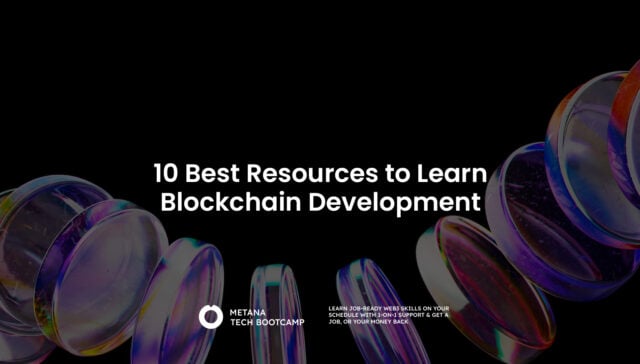Blockchain, the underpinning system for recording information, has become more than just the basis for cryptocurrency. Blockchain is a system of recording information in such a manner that it makes information almost impossible to change, hack, or swindle the system . The distinctive blend of immutability, transparency, and decentralization of blockchain has made it a sought-after choice in more areas than simple technology and money. In addition to altering the face of money transfers, blockchain is revolutionizing the way we do business; it is altering distribution chains, the provision of services, and even the arts.

Why, then, do individuals from various non-technical fields find success in the blockchain industry? The answer lies not only in the technical demands of blockchain but also in the diverse perspectives and associative skills that are crucial to innovation and growth in this field.
In this article, we will explore how the combination of different skill sets and backgrounds fosters a rich environment for creative solutions and groundbreaking advancements in blockchain technology.
Diverse Skills and Perspectives
In the blockchain industry, innovation is key, and it often begins at the crossroads of a variety of skills and disciplines. For example, a person with a background in the arts might come up with some creative, non-technical solutions to the blockchain problem that were beyond the imagination of their technically trained colleague.
Similarly, professionals in areas such as healthcare or logistics can suggest specific use cases that they are interested in and that the technology can address. In other words, their perspective can make the technology more accessible and applicable beyond the traditional electrical engineer’s realm proficient in blockchain world.

Besides, problem-solving in blockchain needs thinking out of conventional technical scopes. For example, knowing the social and economic consequences of the implementation of blockchain solutions is as much important as knowing technology. Economists, social scientists, and legal experts all collaborate to build frameworks that are not only technically sound but also ethical and legal.
Bringing disciplines together increases the volume of innovating in most fields. As a result, blockchain projects become strong, user-friendly, and oriented towards solves real-world challenges. Merging different concepts allows for creative thinking essential for problem-solving in blockchains.
Adaptability and Learning
The rapid transformation of the world of blockchain does not only necessitate an adaptive and lifelong learning, but accelerates it. With the fast change pace and numerous new technologies entering the field, blockchain sector has become a sphere where not only is the ability to learn constantly important, but is essential. As people from the non-technical backgrounds are often forcibly placed in the position of needing to switch the field entirely, these spheres of action are where many of them might excel.

When changing the industry and coming to blockchain from a different industry, people are far more familiar with the processes of mastering new skills quickly. A marketer or a financial analyst who starts working on blockchain needs to at least learn cryptographic basics, the structure of a smart contract, and how consensus algorithm works. The experience of quickly understanding new market trends or changes in the regulatory framework comes in handy.
Furthermore, people coming from various backgrounds are often more open to interdisciplinary learning. They have a tendency to connect dots between different fields which is a distinguishing feature of approaching projects from a broader perspective.
The ability to combine different insights and methods is extremely useful in blockchain as some of the best solutions arise from the combination of ideas. Additionally, blockchain is a field that is constantly changing which is facilitated by career switchers because the learning process is a usual activity for them. That is why people coming from other areas to work in blockchain are one of the main sources of innovation.
Transferable Skills
Even though blockchain is often seen from the technical side, many blockchain initiatives require knowledge that ranges beyond the tech industry. Many skills, including project management, leadership, marketing, and analytics, for example, can be not only transferable but also crucial for the development of any blockchain project.
Project Management:
like any other project, blockchain initiatives need careful planning, organizing, and implementing. Project managers guarantee that required timelines are followed, resources are granted on time, and stakeholders are satisfied with the course of the project, even when some of the aspects related to technological innovations are often misunderstood.

Leadership:
Effective leadership is invaluable, especially in such a dynamic field as blockchain. Various backgrounds of leaders bring different management styles and team-building strategies that are especially critical in motivating a multidisciplinary team and overcoming the challenges associated with the emerging disrupting technologies.
Marketing:
Blockchain professionals frequently highlight such skills as communication capabilities and the ability to influence and convince others, which are essentially the features of marketing professionals. In this respect, marketing professionals are particularly good at creating the story around both the prospective benefits of emerging blockchain technology to attract funding and the future practical application.
Analytical skills:
From the analysis of data to strategic decision-making, analytical skills are essential for evaluating the potential impacts of blockchain and setting its implementation on the right track. Professionals with expertise in finance, research, or economics . Market trends, weigh in the risks and make the projections to accurately position every blockchain initiative.
Industry Needs
Even though the blockchain industry is considered highly technologically driven, numerous skill sets are needed for the growth of this sphere and integration of this technology in various industries. Other than the purely technical skills, which can be defined as coding and system architecture among others, the industry is in the need of other professionals that could work in the field of regulatory, ethical considerations, and in business development.
- Regulatory: With the technology’s rapid spread and new blockchain services on the market need, there is a growing need for professionals understanding the law and how to shape it affecting the industry.
- Ethical: Ethicists and social scientists can provide a worthy input with expertise in ethics of technology and natural philosophy expertise to control the social impact of the technology.
- Market developers: The technology’s developers and users understanding of business strategy and practice in the field is desirable to spread the word and find new market applications for the technology.
To sustain any industry’s long-term growth and responsible behavior, the presence of various professionals in the field considering their professional mix is essential.
Networking and Community
Networking is a critical element that is foundational to the blockchain community. Here are some ways it contributes to those moving into the sector of creating blockchains:

- Community Engagement: Many people become introduced to opportunities for jobs, startups and collaboration through contributing to or reading blogs, posts and forums.
- Leveraging Existing Networks: Many professionals who are already employed in other industries and fields become involved in the blockchain-space through their current and old colleagues.
- Knowledge Exchange: The sharing of various experiences and developing a deeper understanding of the working of the entire industry is extremely important to many people across skill, education, and career levels.
This connectivity plays a crucial role in the potential for both new entrants and people with experience to take part and navigate the blockchain terrain.
Conclusion
To conclude, the blockchain industry benefits from the diversity of skills and backgrounds that it attracts. Peoples’ unique backgrounds facilitate problem-solving and innovation in the field. The dynamic characteristics of blockchain require people who can quickly adjust and have a passion for learning constantly. The skills such as project management, leadership, and analysis, often learned in other fields, are crucial to the success of blockchain projects. Moreover, the blockchain industry requires proficiency not only in technical skills but also in regulations, ethics, and business development. Network building is also integral for career development and opportunities in the blockchain industry. Therefore, the multidisciplinary nature of blockchain is critical to its success and innovation. With your unique backgrounds, what skills can you bring to the blockchain industry?

FAQs
Why do people from diverse backgrounds excel in blockchain?
- Individuals from various fields bring unique perspectives and skills, driving innovation and problem-solving in blockchain technology.
What skills are important for success in blockchain?
- Key skills include technical knowledge, understanding of cryptography, problem-solving, and strong communication abilities.
How can someone from a non-technical field succeed in blockchain?
- By leveraging strengths in management, creativity, or business strategy, and learning the necessary technical basics.
Why is interdisciplinary knowledge valuable in blockchain?
- It encourages holistic approaches, fostering solutions that consider technical, economic, and social aspects of blockchain applications.
What industries benefit most from blockchain technology?
- Finance, supply chain, healthcare, and real estate are among the sectors that are greatly benefiting from blockchain innovations.
What is blockchain technology?
- Blockchain is a system of recording information in a way that makes it difficult or impossible to change, hack, or cheat the system.
Why is blockchain considered secure?
- Its decentralized nature and cryptographic hashing make it nearly immune to fraud and hacks.
How does blockchain impact job opportunities?
- It creates new roles and demands for blockchain expertise in various industries, expanding career opportunities across fields.
What future trends are emerging in blockchain?
- Trends include the growth of decentralized finance (DeFi), increased use of smart contracts, and blockchain integration into governmental systems.
Can blockchain skills be self-taught?
- Yes, numerous resources online, including courses and tutorials, can help individuals self-learn blockchain technology.





